An expansive covered village built with engineered timber and adobe internal walls for rural Brazilian children studying far from home has beaten a stellar shortlist to take the RIBA International Prize 2018.
No air conditioning is needed despite tropical temperatures hitting the mid-40s in summer, thanks to its open design and the large canopy roof supported by cross-laminated eucalyptus beams, prefabricated for speed of assembly.
Stabilised earth blocks hand-made on site from local soil, some perforated, cut transport costs. Their thermal qualities help keep 540 children, who travel many hours from remote villages to study at the charitable Canuanã School, comfortable.
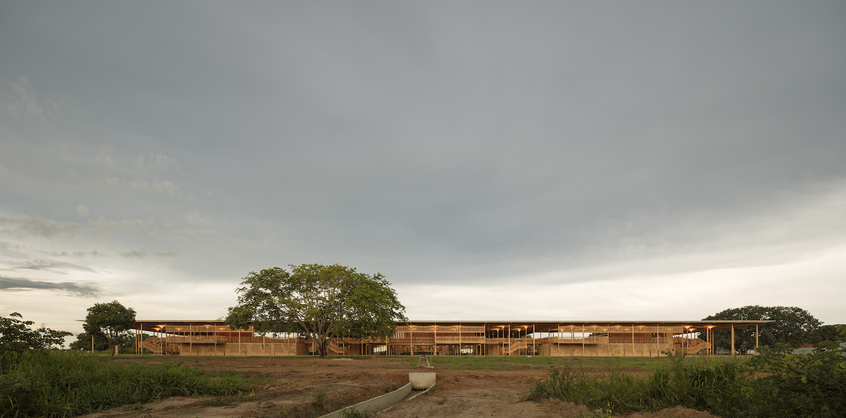
No air conditioning needed despite temperatures hitting the mid-40s, thanks to its open design and the large canopy roof (Photograph by Leonardo Finotti)
Called Children Village, the complex covers just over 23,300 square metres, an area greater than three football pitches.
The Brazilian architects who designed it, Aleph Zero and Rosenbaum, said they had aimed for “cultural rescue, encouragement of local constructive techniques, native knowledge and beauty” against an encroaching “blindly modernised” culture.
They developed the design through intensive consultation with the pupils, teachers and local community, which impressed the grand jury chaired by renowned architect Elizabeth Diller (DS+R).
Because it combines a contemporary aesthetic with traditional techniques, judges described Children Village as “reinventing Brazilian vernacular”.
The RIBA International Prize is awarded every two years to a building that exemplifies design excellence, ambition and meaningful social impact. RIBA says it is one of the world’s most rigorously judged architecture awards, with every longlisted building visited by a group of international experts.
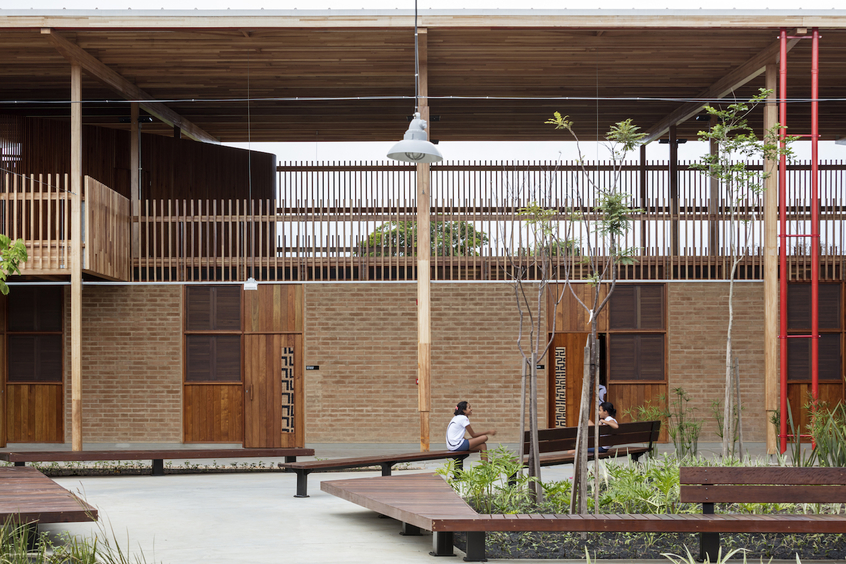
Rosenbaum and Benguela said the space helps to reconnect youngsters “to their origins and with their surrounding ecosystem” (Photograph by Leonardo Finotti)
“Children Village provides an exceptional environment designed to improve the lives and wellbeing of the school’s children. It illustrates the immeasurable value of good educational design,” said RIBA President Ben Derbyshire in announcing the award yesterday.
Aged 13 to 18, children attending the Canuanã School come from remote areas, some travelling many hours by boat. The school is one of 40 funded by the Bradesco Foundation, set up to serve rural communities across Brazil.
The architects, Gustavo Utrabo and Petro Duschenes from Aleph Zero, and Marcelo Rosenbaum and Adriana Benguela from Rosenbaum, wanted to give children a home away from home, where they can enjoy a sense of belonging but also have space for individual development.
“It has been a joy to see the children making the building their own and adapting the space to fit their needs,” said Utrabo and Duschenes. “We wanted to be prescriptive without being overbearing, to be supportive without being patronising, and to encourage growth and development without cosseting it.”
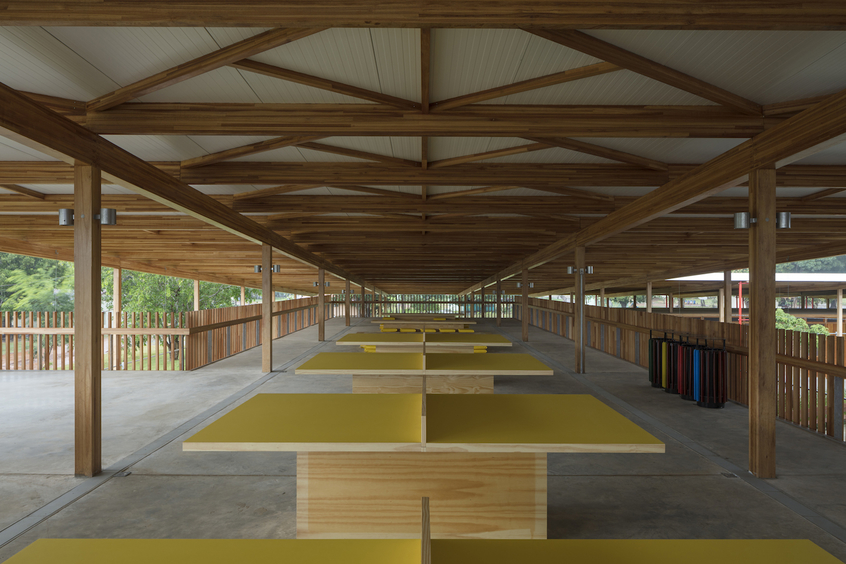
On the upper level are flexible communal spaces for reading and relaxing, with balconies and hammocks (Photograph by Leonardo Finotti)
The village is organised into two identical complexes, one for girls and one for boys.
Dormitories are arranged around three open, shaded courtyards at ground level. On the upper level are communal spaces for reading and relaxing, with balconies and hammocks.
Rosenbaum and Benguela said the space helps to reconnect youngsters “to their origins and with their surrounding ecosystem”.
The courtyards are filled with local savannah and tropical species. A pool stocked with fish collects the rain spilling from the roof, with overflow channeled to the adjacent Javaés River.
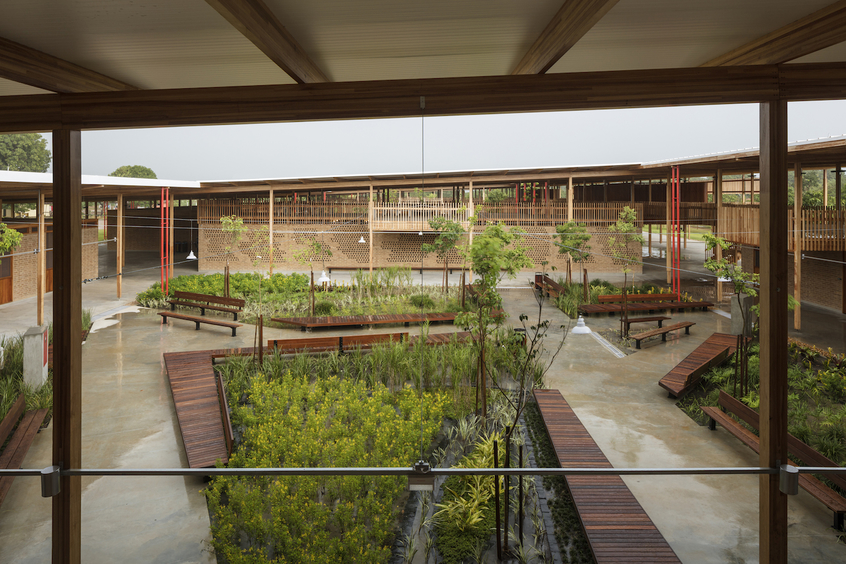
Courtyards reconnect youngsters “to their origins and with their surrounding ecosystem” with local savannah and tropical species (Photograph by Leonardo Finotti)
Children Village beat three other shortlisted buildings:
- The Toho Gakuen School of Music, Tokyo, by Nikken Sekkei;
- Central European University – Phase 1, Budapest, by O’Donnell + Tuomey;
- Bosco Verticale, Milan, by Boeri Studio.
Click here to find out more about the RIBA International Prize 2018 and the other shortlisted projects.
Images reproduced with permission
Comments
Comments are closed.





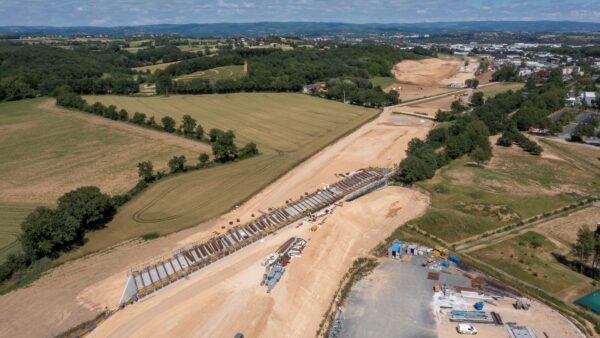
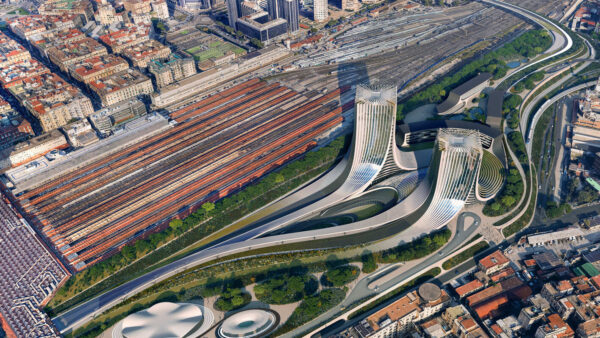
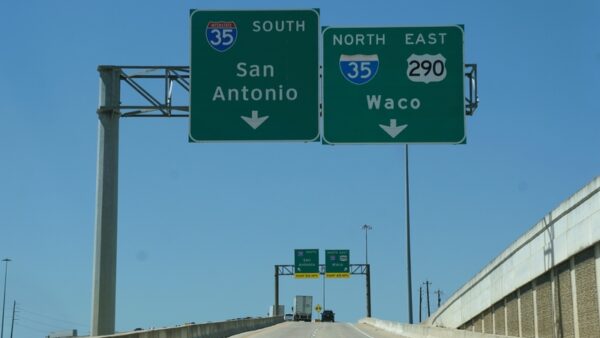
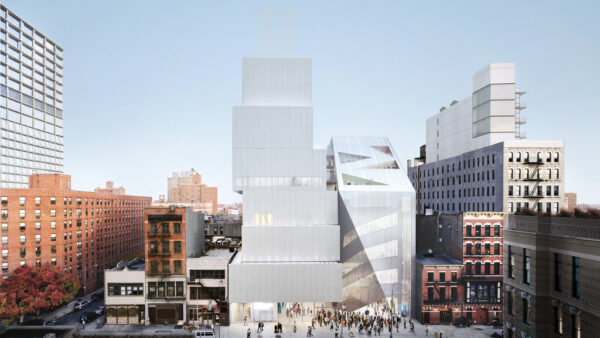

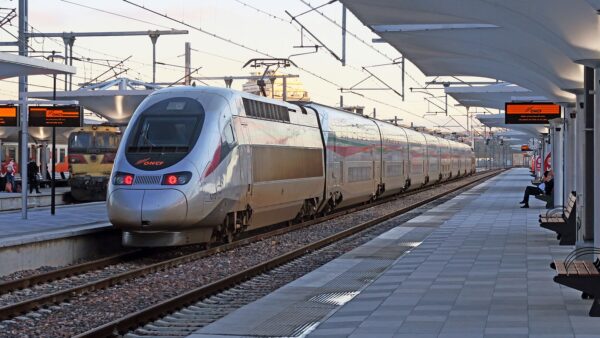
Congratulations to Brazil